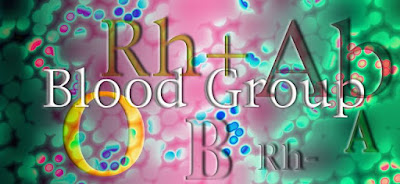How Do the Holidays Affect Your Heart?
What May Lead to Increased Cardiac Risk
While the holidays are meant to be filled with the joy of family and friends and good times, for anyone with heart disease—or who is at an increased risk for heart disease—the holidays instead may be a time of special risk.
Several studies have shown that during the winter holidays not only are heart problems more likely to occur but when they do occur they are more likely to be fatal. The months of December and January are especially risky for people with heart disease.
And according to a 2004 study published in Circulation, the three dates people are most likely to die from heart disease are Dec. 25, Dec. 26, and Jan. 1.
Why Are the Holidays Dangerous to Your Heart?
Why the holiday period is a particularly dangerous time for the heart is being debated among experts. But in trying to pinpoint a culprit, the experts have plenty of potential causes to choose from. In fact, the increased cardiac risk associated with the holidays is very likely produced by many different factors working together.
The Holidays and the Risk of Heart Attack
Myocardial infarctions (heart attacks) account for most of the excess heart problems that occur during the holidays.
Heart attacks are usually caused by a condition called acute coronary syndrome, or ACS. ACS happens when an atherosclerotic plaque in a coronary artery suddenly ruptures, and a blood clot begins to form at the site of the ruptured plaque.
If the clot completely occludes the artery, a complete heart attack (known as an STEMI) occurs. If the occlusion is less than complete, then generally the victim suffers either a “partial” heart attack (an NSTEMI), or unstable angina. All episodes of ACS are considered to be medical emergencies, and if treatment is delayed, increased heart damage or death can occur.
Most likely, the reason ACS is more common during the holidays is that the holiday season tends to abound with “triggers” for ACS - that is, with events that can hasten the rupture of a plaque. Here are some triggers for ACS that tend to be more common during the holidays than at other times. While this list stresses the risk factors we see especially during the winter holidays, keep in mind that several of these risks may turn up with any holiday, or with any important event in your life:
exposure to cold weather
exposure to sudden and unusual levels of exertion, such as shoveling snow
exposure to emotional stress, which is very common and is often fairly severe during the holidays
becoming sedentary over the winter months
exposure to illness, especially influenza, which can produce inflammatory changes in the blood vessels
over-indulging in food, alcohol and/or tobacco
exposure to indoor pollution, such as cigarette smoke, or even a poorly-drafted log-burning fireplace
All these factors likely contribute to the excess in heart attacks that occur over the holidays.
The Holidays and Heart Failure
People with heart failure—a condition in which the heart is no longer able to function adequately to meet all of the body’s needs—are also at increased risk during the holiday period. The reasons that heart failure often worsens over the holidays are similar to the reasons that heart attacks are more common. These include exposure to the cold, sudden exertion (especially after slacking off on routine physical activity), exposure to “winter infections” like the flu, and over-indulgence.
Over-indulgence is a special problem if you have heart failure. Going off a low-salt diet is a common reason people need to be hospitalized for heart failure, especially during the holidays, as is having a few more drinks than normal.
The Holidays and Cardiac Death
Not only are heart problems more frequent during the holidays, but when heart problems occur they are more likely to prove fatal. Nobody is sure of the reason for this, but the most likely cause is human nature.
Having a heart problem is never convenient, but at what time of year would it be less convenient than during the holidays? Not only would having a heart problem disrupt your own enjoyment of the festivities, but it would disrupt the lives of all your loved ones and friends who have worked so hard and traveled so far to make the holidays perfect. It is quite easy, during these times, to ignore the warning symptoms that might allow for early evaluation and rapid treatment. All too often, people suffering a heart attack during the holidays convince themselves they’re just imagining their symptoms, or attribute them to a stomach problem, or otherwise, excuse themselves from having to seek immediate medical help. (Ignoring cardiac symptoms, by the way, especially at holiday time, appears to be more common among women than men.)
By the time the symptoms can no longer be brushed off, or by the time your loved ones can tell just by looking at you that you’re in trouble, it may be too late to prevent a catastrophe.
Just because it’s the holidays doesn’t mean it can’t be your heart. In fact, as we have just seen, just because it’s the holidays it’s more likely to be your heart. Always take potential cardiac symptoms seriously—especially at holiday time.
Summary
Heart problems—and death from heart problems—are more likely to occur during the winter holidays than at any other time. You can reduce your odds of becoming a victim of holiday-related cardiac problems by avoiding the triggers that produce them, by being aware of the symptoms of heart disease, and by acting on those symptoms when you think they might be occurring.
 RSS Feed
RSS Feed Twitter
Twitter

























 11:57 PM
11:57 PM
 Unknown
Unknown







